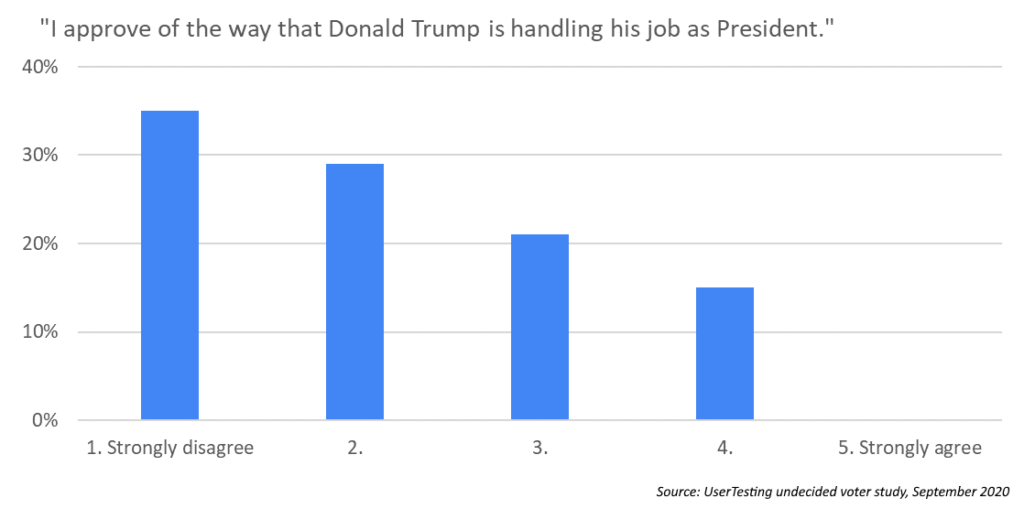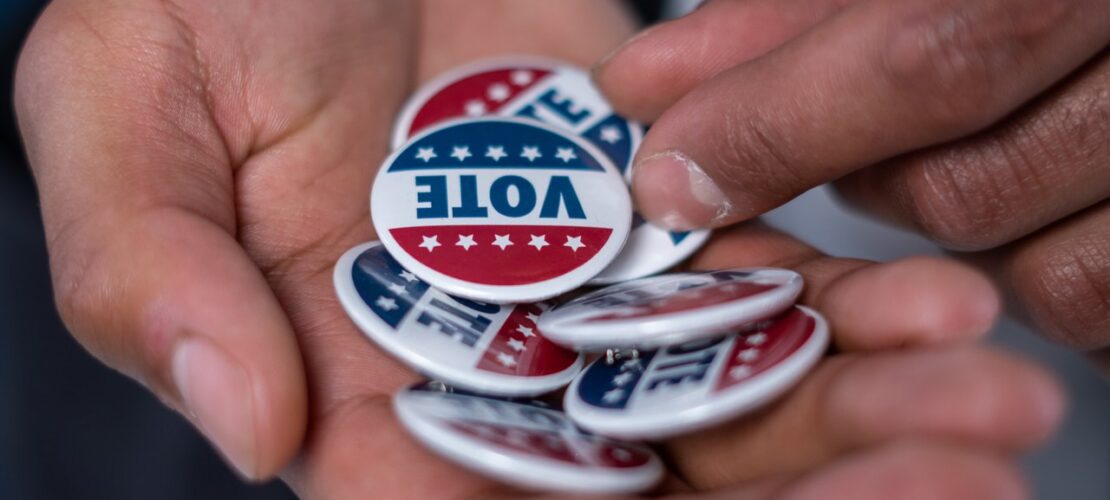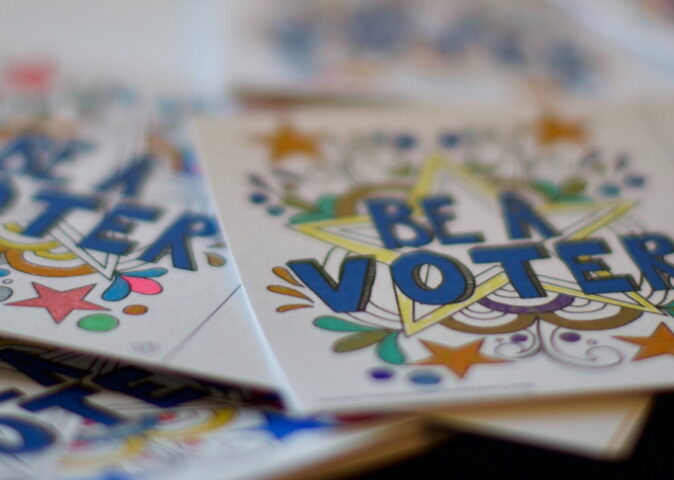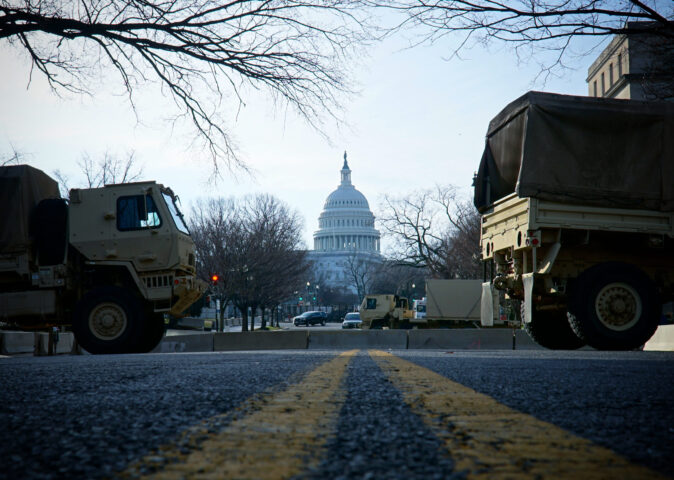The pervasive stereotype of undecided voters in America is that they’re uneducated on the issues and disengaged from the political process. But is that true? We asked undecided voters to speak for themselves, and found that there is far more nuance than most people believe in their approach to the assessment of political candidates. They are deeply independent, deeply dismayed over what they see as a toxic culture in American politics, and are approaching their voting decision in that context.
Public perceptions of undecided voters are misleading
With the election season in full swing, political analysts from all sides of the spectrum are poring over daily polling numbers, offering predictions about who will be elected president on November 3. While most national polls show that Joe Biden enjoys a slight edge over Donald Trump, there are still a significant number of undecided voters who could potentially deliver a victory for either candidate.
This is especially true for battleground states where polling data still has both candidates behind the majority threshold that would be needed to capture each state’s electoral votes. In states like Arizona, Florida, North Carolina, Georgia, Ohio, Pennsylvania, and Texas (yes, even Texas), undecided voters could end up casting the pivotal votes needed for either candidate to win those states and ultimately, the election.
As both sides attempt to court undecided voters, this group is frequently the punchline of jokes in the media. In an August 10 post to The Onion’s Instagram account, the satire news source pokes fun at a fictional undecided voter who is “looking forward to learning more about Donald Trump during the campaign.”
Following Trump’s town hall with undecided voters on September 15th, late show host, Stephen Colbert quipped, “I assume the night started with each of them being roused from a coma.”
And perhaps the most scathing criticism of uncommitted voters has come from humorist David Sedaris who jokes:
To put them into perspective, I think of being on an airplane. The flight attendant comes down the aisle with her food cart and, eventually, parks it beside my seat. “Can I interest you in the chicken?” she asks. “Or would you prefer the platter of sh*t with bits of broken glass in it?”
To be undecided in this election is to pause for a moment and then ask how the chicken is cooked.
The shared idea in each of these commentaries is that undecided voters must be living under a massive boulder to not have already made up their minds about the two main candidates in the coming presidential election. Each commentary is a jab that suggests this group of voters is what is commonly referred to as low information voters.
But is this actually true?
Meet the real undecideds
We took a deep dive to find out more about this group and understand their decision process. We had them answer a handful of key questions: Who are they, why are they still undecided, what do they ultimately care about, and are there any clues to suggest who they will eventually vote for on November 3?
Insight: Declaration of Independence
Across all of our interviews of undecided voters, there were two main themes that emerged from nearly every participant:
- They have a deep independent streak. The voters that we talked to almost unanimously saw themselves existing outside of the deeply partisan political climate that currently exists. This was even true for the participants who saw themselves as being affiliated with one of the two main political parties (roughly half of them).
- They feel a toxic political culture currently exists across America. This seemed to be a key influence in how they viewed their participation in the coming election. These voters expressed significant apprehension about backing candidates from either major political party who they feel have contributed significantly to the current divisive political climate.
Insight: Many Issues Under Consideration
We asked undecided voters to identify the single most important issue that would influence their decision on which candidate to vote for in the coming election. Concern over the economy was the most reported issue for about a third of participants. Race/Black Lives Matter and constitutional rights were each mentioned by roughly a tenth of our sample. Beyond that, there is a wide range of issues that this group of voters is thinking about as they decide who to cast their vote for on November 3. They include:
- Economy
- Race / Black Lives Matter Movement
- Constitutional Rights
- Healthcare
- Education
- COVID-19
- Gun Rights
- Gun Control
- Reduce Political Divisiveness/Tension
- National Security
- Abortion (Pro-Life)
- Environment/Climate Change
We also asked participants to identify the candidate that they feel most represents their point of view on their top issue. Almost half of participants felt that Trump better represents them on their key issue while about a third felt that Biden was the better candidate in this category. About a quarter of participants said that neither candidate represented their point of view on their stated number one issue.
While this is good news for the Trump campaign, most undecided voters we talked to also disapprove of how he has handled his job as president.

(Note that we did not ask an approval rating on Joe Biden.)
Insight: Diverse Media Diet to Counteract Bias
Another topic that we explored with undecided voters is media diet. Specifically, we asked participants to identify up to three of their most trusted sources for political news. CNN ranked highest with a third of participants including the network as a source for information on the candidates. Fox News was not far behind. The New York Times and The Washington Post were each mentioned by about a fifth of our sample.
Perhaps most noteworthy is that many within our sample said they believe various media sources are biased, and so they are intentionally mixing their media diet to allow for a wide exposure to different viewpoints.
Insight: Which Candidate Will Win?
Our final question asked participants to take out their crystal ball and make a prediction about who will end up winning the presidential election. Perhaps unsurprisingly, the two main candidates came in a dead even tie in our sample. More importantly, we asked participants to explain the ‘why’ behind their prediction:
What it means for the election
- Divisiveness is a turnoff. It cannot be overstated how often each of the participants expressed their dismay over the level of toxicity and divisiveness in the current political climate. Each seemed to be looking for a candidate that would slow or reverse the downward spiral of tribalism in American politics.
- There is no decisive issue. No single issue matters most across the spectrum of undecided voters. While the economy was identified most often mentioned by our sample, there were many other issues that these voters care about, with no consensus over which candidate offers the best solution.
- Perception does not meet reality. The caricature of the low information voter as applied to the undecided camp is misguided. The undecided voters we spoke with are engaged on issues and informed through a deliberate mixture of viewpoints. The thread that binds them is their unwillingness to be beholden to one political party or ideology and their deep dismay at the deteriorating civility in American political discourse.
Note – This study was based on self-guided video interviews with 34 undecided voters, conducted through the UserTesting system in September 2020. This study was conducted before the death of Supreme Court Justice Ruth Bader Ginsberg, which will likely emerge as another key political topic heading into the presidential election.


